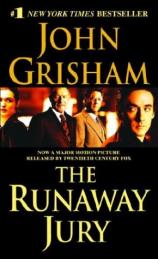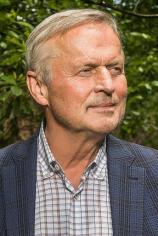The Runaway Jury
Review
The Runaway Jury
In 1979, a boy in my home room was found dead in a schoolyard, with
six rocks the size of quarters stuffed down his throat. I didn't
kill Johnny Pius. But my brother and two friends and I were near
the school that night, and when the police didn't find any better
suspects --- although there were several --- they pulled my brother
off his bike a week after the murder and took him to the
office of the homicide squad. There, with a lot of encouragement,
he confessed, only to deny everything as soon as my mother and I
arrived.
There was no physical evidence against us. Really, there were no
witnesses with solid testimony. But it didn't matter. On Long
Island, in those years, you couldn't put the police on trial ---
juries were so devoted to their homicide detectives that they
produced convictions in more than 90% of the county's murder
trials. Suffolk County homicide detectives probably had the highest
conviction rate in the nation during those years.
In l98l, Jesse Kornbluth wrote a two-part magazine piece about the
case that showed the inadequacy of the police investigation --- and
the very good possibility that innocent people were convicted.
Later, there were investigations of that police department. As for
me, I'm still in jail, still fighting to prove my innocence.
Many people have told me that had it not been for the negative
local publicity, the result of my trial would have been different.
To this day, the lawyers still say that the outcome was decided
when we lost the motion to move the trial to another county. Others
have said that if my name was Kennedy, none of this would have
happened.
The bottom line --- intentionally or not, my jury was
corrupted.
While the police department was very much on trial in my case, the
tobacco industry is on trial in Grisham's book. A jury is selected
in Mississippi to hear the case of a widow whose husband died of
lung cancer. On this jury are all manner of average citizens,
except that one juror, Nicholas, a law school dropout, has managed
to penetrate county records, get a fictitious name added to the
jury roll, and then have that non-person be selected to hear the
case. The tobacco industry goes to great lengths to influence the
jury, even outright bribing a few jurors. There's no dramatic
cross-examination; no heartwrenching testimony.
For once, lawyers play a small role in Grisham's tale. Instead, the
focus is on Rankin Fitch and his nemesis, Marlee, who also happens
to be Nicholas' girlfriend. Marlee and Nicholas have hatched a plot
to get even with the tobacco industry. Fitch is the guy behind the
scenes, a master manipulator with unlimited funds from Big Tobacco,
and he will do anything to win. He is not one of the lawyers, but
this is his eighth tobacco trial and he has never lost.
And then comes the plot twist, which I won't spoil for you.
THE RUNAWAY JURY is timely if only because it fits neatly into the
current debate on litigation reform and the limitation of huge
punitive awards in product liability cases. Reading it, I had
trouble figuring out whether the larger point is that smoking is
dangerous, the jury system is contemptible, or that big business
will go to any length to crush any opposition to profits. Surely,
verdicts have been bought before, and the investigation of jurors
in civil trials is not unheard of, although it may border on the
unethical. None of this is new.
What Grisham's book best illustrates is jury tampering, and the
conduct of a jury which cannot follow instructions. This leaves one
wondering just how corrupt the jury system is, and what impact this
has on the manner in which we dispense justice in this
country.
In both civil and criminal trials, jurors are instructed not to
discuss the case. They are reminded to keep an open mind. They are
ordered not to deliberate until all the evidence has been
presented.
Do they really do this, and if not, why are they unable to follow
simple instructions?
Who in America believes that the jury in the O.J. Simpson trial ---
already the most publicized courtroom event in recent memory ---
did not discuss the case prior to the start of
deliberations?
And when O.J. tried on those gloves, don't you think the jury
discussed it?
Who wouldn't be influenced by that kind of testimony as it
unfolds?
In this sense, juries corrupt themselves.
But there are a number of ways that juries are corrupted. Jury
tampering in the form of purchased votes ---- as Grisham
illustrates here --- is only one. A less prominent theme in THE
RUNAWAY JURY but one which nonetheless plays a major role in any
big trial is the influence of the media; a community saturated by
one-sided publicity about a trial is unlikely to yield a fair and
impartial Jury. Additionally, the conduct of the attorneys can be a
factor in influencing a jury's verdict.
But there is a balancing force --- as unsettling in its own way as
the power of the mighty.
Most trial lawyers will tell you that juries are completely
unpredictable, that selecting a jury is a roll of the dice, that
you can't predict what they'll decide. And so, for completely
irrational reasons, it is increasingly possible that a jury could
run away with a verdict. Perhaps this is why most civil cases are
settled out of court, and most defendants plead guilty. They, like
the characters in Grisham's book, fear the Runaway Jury.
--- Michael Quartararo
The Runaway Jury
- Publication Date: November 30, -0001
- Genres: Fiction
- Mass Market Paperback: 550 pages
- Publisher: Dell Publishing
- ISBN-10: 0440221471
- ISBN-13: 9780440912835




